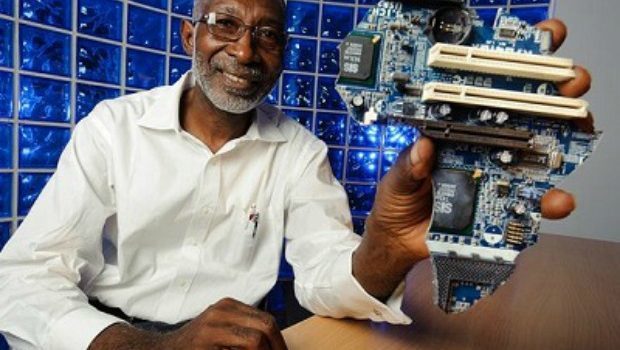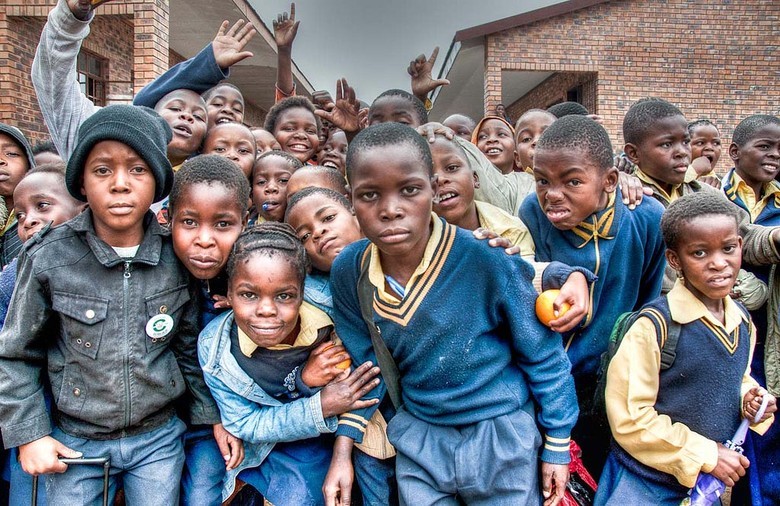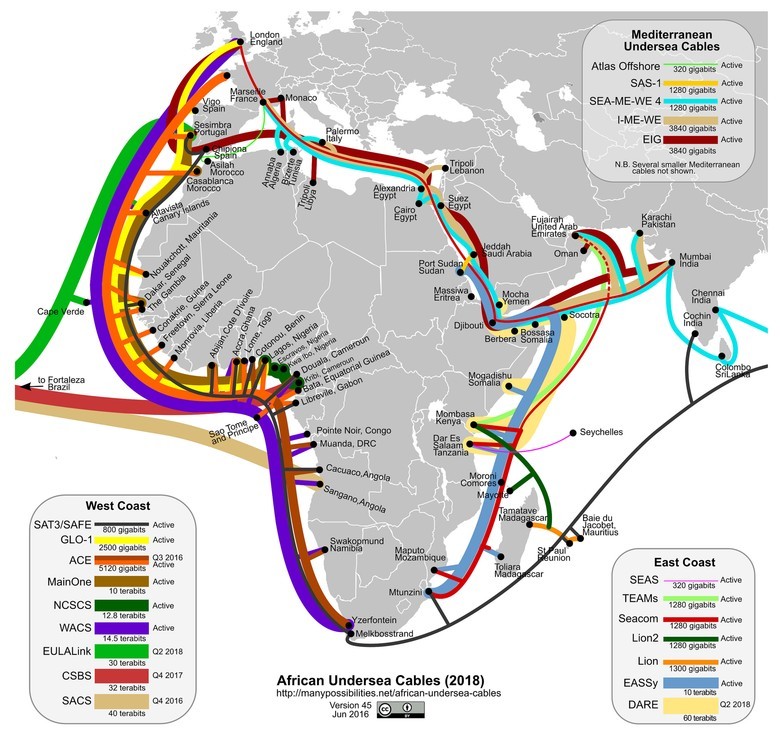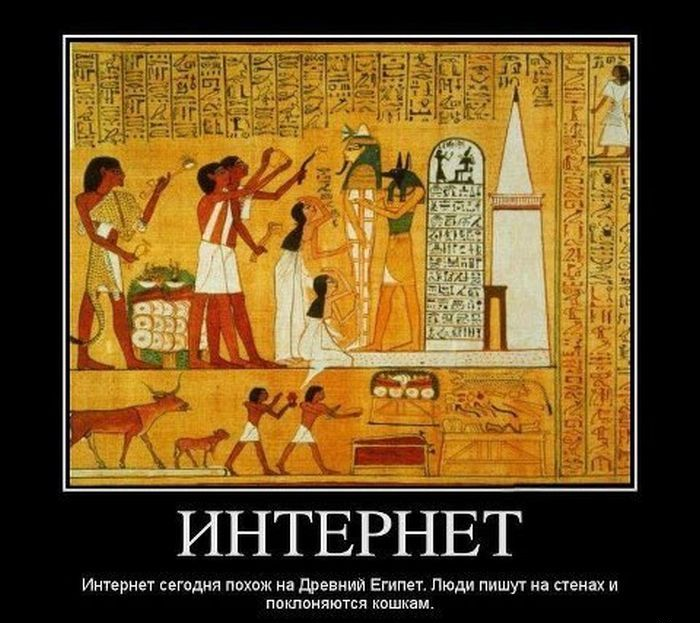Internet around the world: Africa

We continue our cycle of publications devoted to the availability of the Internet in different regions of the world. This time the spotlight is the hottest continent.
Previous articles: Korean Peninsula , China and Taiwan , Iran, Iraq, Saudi Arabia .
')
Probably, it seems strange to you how to write about the Internet right away on the whole continent, the second in size after Eurasia. But Africa is one of the poorest regions. Many countries on the territory of the Black Continent, previously formerly quite prosperous — and some even prosperous — colonies, with independence, one after another, plunged into long-term wars with subsequent infinite poverty. In this regard, the history of Rhodesia / Zimbabwe is very indicative. Exceptions - counted on the fingers.
As a result, today there are very few countries in Africa that it makes sense to talk about in terms of Internet access. According to the report of the British company Opensignal, the situation with access speed looks like this:

Therefore, in our publication we consider only South Africa, Egypt and Morocco.
South Africa
Today it is the strongest state on the continent from the economic, industrial, scientific and military points of view. Historically, after the abolition of apartheid, the overwhelming majority of the technical and scientific intelligentsia are still representatives of the white population of South Africa. Actually, this also applies to all areas of management in the country. Combined with cheap labor in the form of the black population, this is considered to be one of the reasons for the competitiveness of South African products.

A source
National Top Level Domain - .za. In 1988, the first Internet connection in the history of South Africa appeared at Rhodes University. By 2000, there were 2.4 million users in the country, in 2009 - 5 million. Today, about 29 million people use the Internet in South Africa (52% of the population). This is about 13-14% of the total number of users in all of Africa .
This is how the scheme of connecting African countries to underwater fiber optic cables looks like:

The headquarters of Telkom Corporation, which provides telecommunication services in 38 African countries, is located in South Africa. In her native country she is one of the strongest players. Telkom launched the first ADSL access service at a speed of 512/256 Kbps in South Africa in 2002. Later, they started offering slower, but cheaper options: 384/128 and 192/64 Kbps. In 2006, the wired 1-megabit connection appeared. In 2010, a 10-megabit connection became available. Although today in South Africa you can connect via a 100-megabit channel, but 58% of broadband connections are not faster than 4 Mbit / s . South Africa and Egypt also account for 97% of African IPv6 addresses.
Prices for mobile Internet are very dependent on the tariff. For example, the South African mobile operator Cell C since January 1 offers the mobile Internet from $ 0.75 for 25 MB of traffic to $ 22.5 for 10 GB.
As for censorship, it is weakly expressed in the South African segment. Since 2006, began to prohibit display porn content on sites that are hosted on the territory of South Africa. Over the past 10 years, various politicians have tried to impose additional restrictions, penalties and rules, but in general, the authorities practically do not restrict users to freedom of access to information.
Morocco
This state, located on the northwestern tip of Africa, has a turbulent history, full of ups and downs. In 1956, Morocco ceased to be a French colony and gained independence. Today, this is not a very rich state, mostly living at the expense of agriculture - hello Moroccan tangerines! - and tourism. However, the authorities are fully aware of the weaknesses of the economy and gradually develop the industry.

National Top Level Domain - .ma. The first internet connection appeared in 1993, at the High School for Engineers in Rabat. And the first TCP / IP connection is at Al-Akhawayan University (Al – Akhawayan University in Ifran). In the early years, the Internet was used in Morocco only in scientific and educational institutions, that is, access to it was mainly for students and scholars. In 1995, the Internet subscription fee was $ 50, which was a lot of money for the poor. In 2002 - about $ 6 / month. In 1996 there were about fifty (50) sites in Morocco.
Perhaps only the proximity to trade routes and the development of the tourism sector can explain the fact that today Morocco competes with South Africa in the degree of penetration and accessibility of the Internet. The number of users is about 20 million (58% of the population). In addition, in Morocco, 48% of connections are slower than 4 Mbit / s. In many cafes and hotels you can find free Wi-Fi, all for the benefit of tourists. However, you can buy a local SIM card from one of the mobile operators Maroc Telecom, Inwi and Meditel. The cost of mobile Internet: from about $ 0.5 for 200 MB to $ 20 for 24 GB .
Internet censorship in Morocco is, but weakly expressed. It mainly concerns opposition-political sites, for example, propagandizing the independence of Western Sahara, extremist and terrorist resources, as well as sites that speak disrespectfully about the authorities. For example, a few years ago, Maroc Telecom briefly blocked Youtube because video clips appeared that mock the King of Morocco. At the same time, some proxy services are also blocked.
Egypt
- Let's go to Greece,
pyramid see sphinxes.
- Let's better take a trip to your
School - geographically in the eye look?

For a long time, this North African country was one of the main tourist destinations for Russians. After recent political upheavals and a blown-up passenger plane, it became unsafe to rest there, but recently the situation has been improving. So we could not ignore Egypt, talking about the Internet in Africa.
National Top Level Domain - .eg. In 2000, Internet penetration in the country was less than 0.6% of the population. In 2008 - 18%, and today in Egypt about 31 million people use the Internet (33% of the population). This is mainly ADSL and mobile Internet.

Today, in Egyptian cafes and hotels is not too often free Wi-Fi. So the best way would be to purchase a local SIM card. Say, the Etisalat operator provides in Cairo the speed in the region of 11.3 Mb / s , and the prices for the mobile Internet in it range from about $ 0.14 for 75 MB to $ 4 for 6 GB (per month). Also note the suggestions of Vodafone Egypt and Orange Egypt . If you are traveling with your family, you can buy a local USB modem with a sim card and prepaid traffic. In general, the prices of the main Egyptian mobile operators are very close, so the choice of a particular company depends mainly on the convenience of purchasing in the city where you relax.
Censorship in the Egyptian Internet is weak. What is strange, given the events of recent years. Perhaps the most - if not the only - bright event on the Egyptian Internet was its total shutdown in 2011, when they overthrew President Mubarak, who ruled the country since 1981. Today you are unlikely to encounter any noticeable filtering of requests or blocking sites.
Source: https://habr.com/ru/post/373151/
All Articles